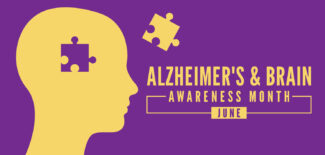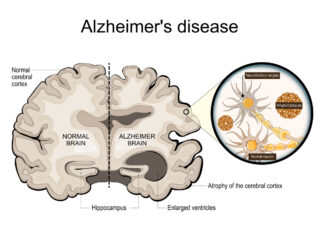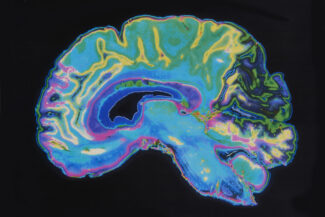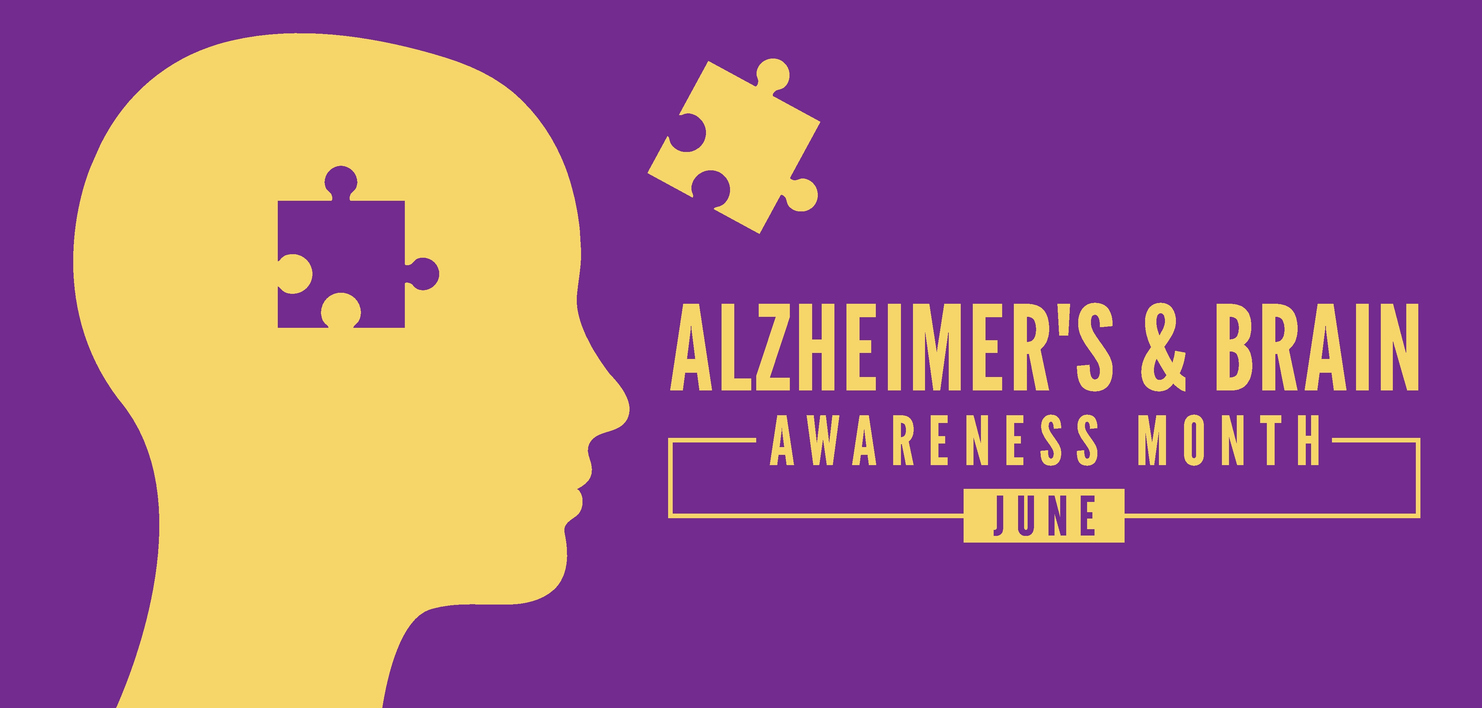
Each June, Alzheimer’s & Brain Awareness Month shines a light on one of the most pressing public health challenges of our time. More than 55 million people globally, and over 6 million in the United States, live with Alzheimer’s disease or another form of dementia. According to the Alzheimer’s Association, this number is expected to rise significantly as the population ages, making education, awareness, and early intervention more critical than ever.
This national initiative encourages individuals, caregivers, and communities to learn the warning signs, understand the difference between Alzheimer’s and other forms of dementia, and take action to support brain health. By spreading awareness and engaging in prevention, we can improve outcomes for those living with dementia and drive progress toward better treatments and support systems.
Understanding the Difference Between Dementia and Alzheimer’s Disease

While often used interchangeably, dementia and Alzheimer’s disease are not the same. Dementia is a general term for a severe decline in cognitive function that interferes with daily life. It includes conditions that affect memory, thinking, language, and judgment. Alzheimer’s disease is the most common form of dementia, accounting for an estimated 60% to 80% of all cases.
Alzheimer’s is characterized by the buildup of abnormal proteins in the brain, amyloid plaques and tau tangles, which disrupt cell communication and lead to brain shrinkage over time. Symptoms typically progress from mild memory loss to disorientation, confusion, difficulty with speech, and eventually a loss of independence. Learn more about how Alzheimer’s changes the brain from the National Institute on Aging.
Other types of dementia include vascular dementia, Lewy body dementia, and frontotemporal dementia, each with distinct underlying causes and symptom patterns.
Accurate diagnosis is critical to managing these conditions. Advanced brain MRI scans can detect structural changes in the brain, helping physicians distinguish between types of dementia and monitor disease progression. Greater Waterbury Imaging Center offers neurological brain MRI services, including specialized imaging for Alzheimer’s and dementia, supporting early and precise evaluation.
Recognizing the Warning Signs of Alzheimer’s Disease
Alzheimer’s disease often begins subtly, with early signs mistaken for normal aging. However, understanding the red flags can lead to earlier diagnosis and more effective care planning. The Alzheimer’s Association identifies 10 warning signs to be aware of:
- Memory loss that disrupts daily life, such as forgetting recently learned information or events.
- Difficulty planning or solving problems, such as trouble following a recipe or keeping track of bills.
- Challenges completing familiar tasks at home or work, such as forgetting how to drive to a familiar location.
- Confusion with time or place, including losing track of dates or becoming disoriented in familiar surroundings.
- Trouble understanding visual images and spatial relationships, which can affect balance and reading.
- New problems with words, including difficulty following conversations or naming everyday objects.
- Misplacing items and being unable to retrace steps to find them.
- Decreased or poor judgment, particularly with money or grooming.
- Withdrawal from work or social activities due to difficulty keeping up.
- Mood and personality changes, such as increased confusion, suspicion, anxiety, or depression.
These symptoms may develop gradually, but if you or a loved one notices persistent changes, it’s essential to consult a physician. Neurological evaluations and diagnostic tools, such as MRI, help rule out other causes and support early detection.
Reducing Risk and Supporting Brain Health

While there is no definitive way to prevent Alzheimer’s, research suggests several strategies that may help reduce risk and support long-term brain health. These focus on both physical and cognitive wellness:
- Stay physically active: Regular aerobic exercise improves blood flow to the brain and may delay the onset of dementia-related symptoms.
- Eat a brain-healthy diet: Diets like the Mediterranean or DASH diet, rich in fruits, vegetables, whole grains, healthy fats, and lean proteins, support vascular and cognitive health.
- Remain socially engaged: Maintaining close relationships and participating in group activities can reduce isolation, which is linked to cognitive decline.
- Keep your brain active: Engaging in lifelong learning, puzzles, reading, and creative hobbies can help build cognitive reserve.
- Manage chronic conditions: Diabetes, high blood pressure, and obesity are linked to higher dementia risk. Controlling these factors is key to prevention.
Brain imaging can also play a role in prevention by identifying early structural or functional changes in the brain. Visit our MRI for Alzheimer’s and Dementia page to learn how Greater Waterbury Imaging Center supports early diagnosis and ongoing monitoring. You can also explore our broader MRI Brain Scan services for detailed information on neurological imaging.
The Importance of Early Alzheimer’s Diagnosis
Recognizing the early symptoms of Alzheimer’s can lead to more effective care planning, earlier access to medications, and improved quality of life. Early diagnosis also empowers individuals and their families to make informed decisions regarding their legal, financial, and care needs.
Common early symptoms include:
- Memory loss that disrupts daily life
- Difficulty completing familiar tasks
- Confusion with time or place
- Trouble with visual images and spatial relationships
- Challenges in planning or solving problems
Medical providers often use a combination of cognitive assessments, physical exams, and imaging tests to evaluate brain changes. MRI plays a crucial role in identifying structural abnormalities and ruling out other causes of memory loss.
How MRI Supports Alzheimer’s Diagnosis and Monitoring

Magnetic Resonance Imaging (MRI) is a non-invasive, highly sensitive imaging tool that provides detailed views of the brain’s anatomy. It can detect changes such as:
- Shrinkage of the hippocampus and surrounding areas
- Brain atrophy and ventricular enlargement
- White matter changes and microvascular injury
- Other conditions that may mimic Alzheimer’s or coexist with it
At Greater Waterbury Imaging Center, neurological MRI scans are used both to support initial diagnosis and to monitor disease progression over time. Our imaging helps physicians assess treatment effectiveness and adapt care plans for each patient’s needs.
Spreading Awareness and Supporting Families
June is Alzheimer’s and Brain Awareness Month, a time to wear purple, share stories, and stand in solidarity with the millions affected. According to the Alzheimer’s Association, more than 6 million Americans are living with Alzheimer’s, and that number is projected to nearly double by 2050.
Families, caregivers, and patients benefit from greater awareness, reduced stigma, and improved access to support services. Local and national organizations, such as the Alzheimer’s Association, offer education, hotlines, caregiver resources, and opportunities to get involved.
Awareness Drives Action
Alzheimer’s and Brain Awareness Month reminds us of the power of knowledge, early intervention, and compassionate care. By recognizing the symptoms, advocating for brain health, and supporting loved ones, we can make a difference in the lives of those affected by cognitive decline. MRI remains an essential tool in the accurate diagnosis and monitoring of Alzheimer’s disease, providing clarity and guidance for patients, families, and care teams.
Learn more about our advanced neurological MRI services, including imaging for Alzheimer’s and dementia.
Greater Waterbury Imaging Center offers state-of-the-art neurological MRI scans to support early detection and management of Alzheimer’s disease. Our experienced team works closely with referring physicians to deliver accurate, patient-centered diagnostic imaging. Contact us today to schedule an MRI for Alzheimer’s and dementia.


